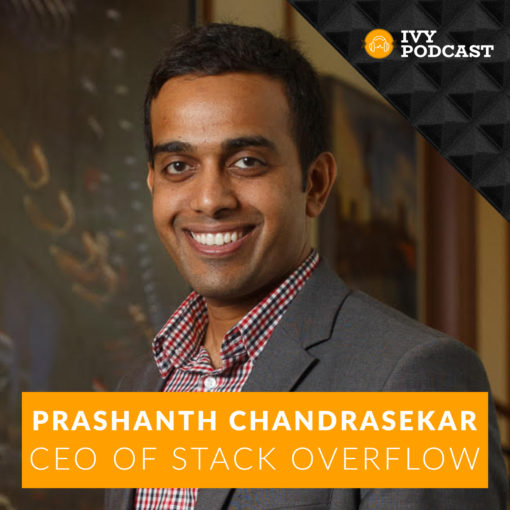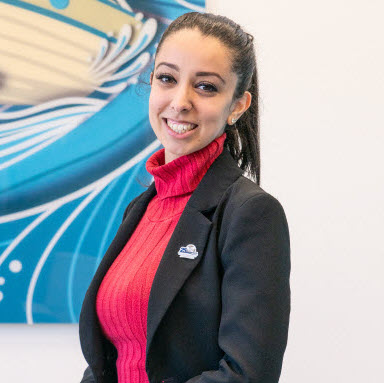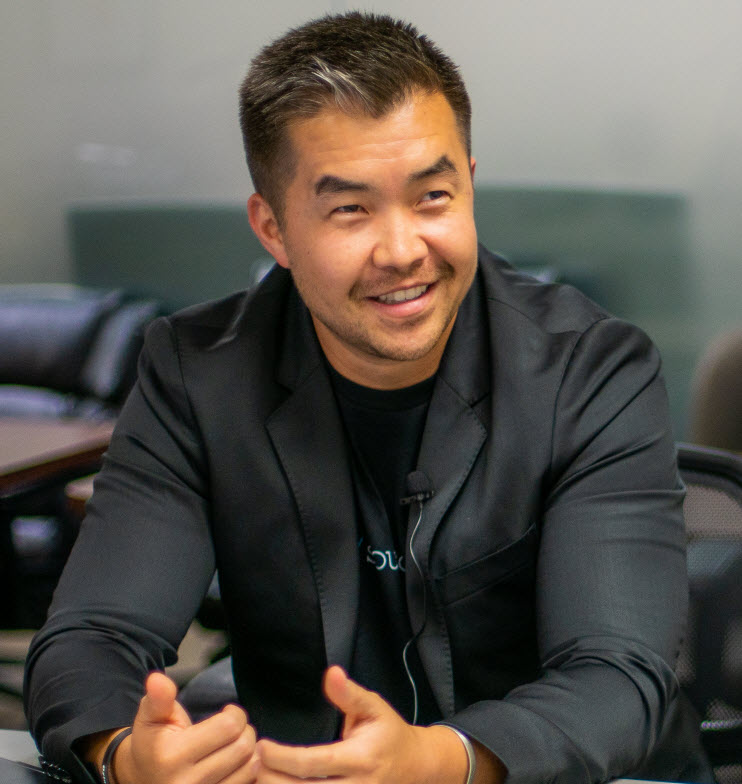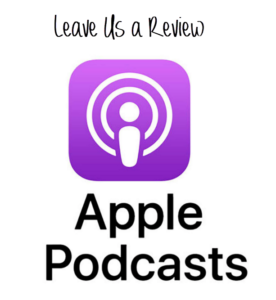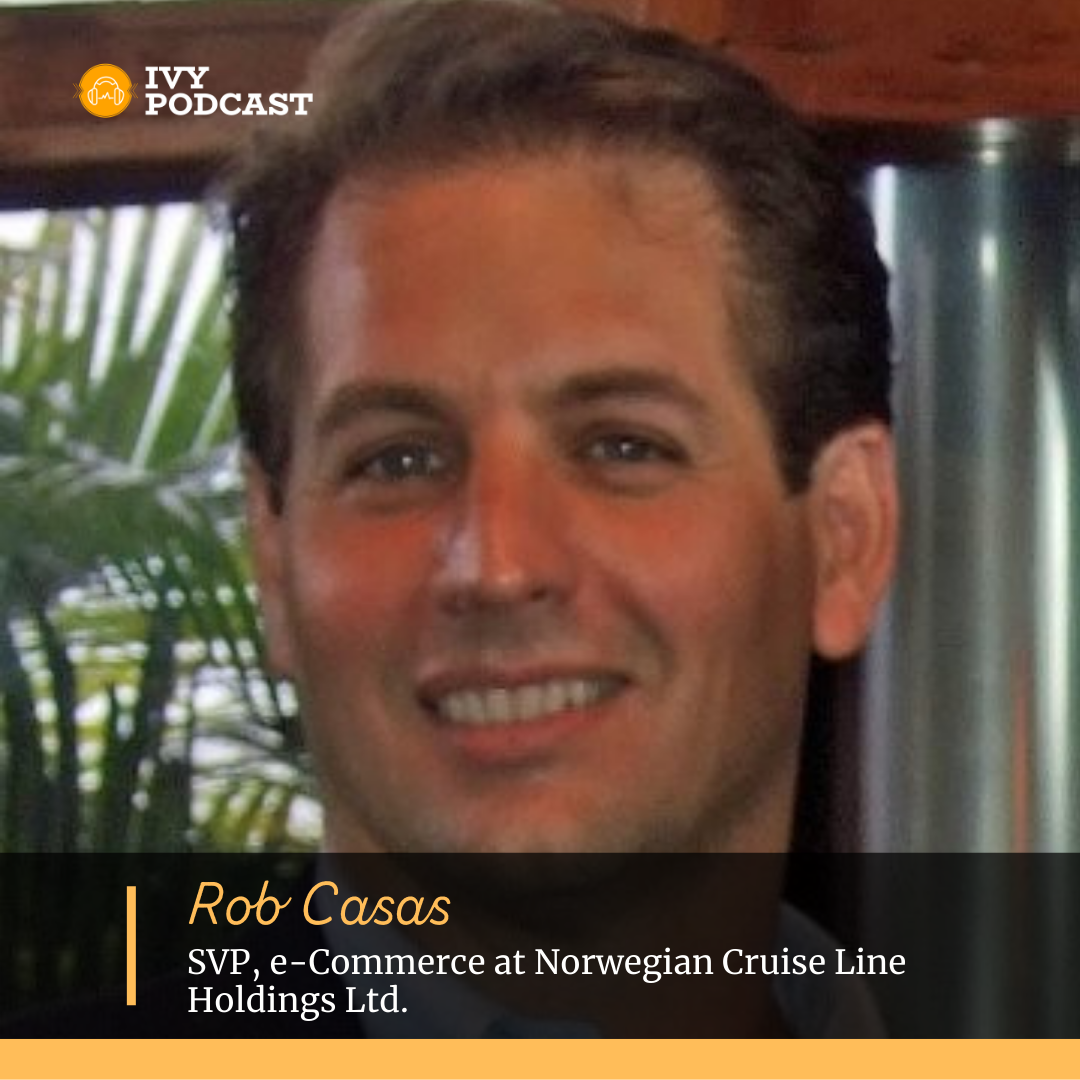
Rob Casas serves as the Senior Vice President, e-Commerce of Norwegian Cruise Line. Rob started at Norwegian Cruise Line in January of 2018. Rob currently resides in the Miami/Fort Lauderdale Area.
Episode transcription:
[00:00:00] Rob Casas: [00:00:00] My name is Rob Casas. I've been in the travel industry for over 30 years, leading the efforts of great travel brands in the e-commerce space. [00:00:36] Jahn Karsybaev: [00:00:36] Awesome, Rob, thanks so much for finding time to join us on the podcast today. We're very excited. I know we've been playing this for quite some time. Tell us a little bit about your backgrounds, career wise, where you come from. And then one, spend a few minutes talking about some of the latest trends. [00:00:52] Rob Casas: [00:00:52] Absolutely. Thanks, Jahn. Good to be here. My career started back in 1988, and I went to work for Delta Airlines right after I graduated from school college. And my first few years were field operational roles working at airports call centers and so forth. So my involvement in digital started Peck in the mid nineties when I was given responsibility for overseeing the Delta shuttle. ATNS Delta shuttle, as you may know, is the shuttle service that Delta has between New York, Boston, New York, and Washington, very much a high transaction and speed is of Avastin. Back then it was one of the first platforms that enabled instantaneous point of sale reservation transactions as passengers board their flights. So that went on to other projects. Like the introduction of boarding pass readers in the mid to late nineties, and really sort of set me up for then going to work in the companies on the company's fledgling website, which at the time was known as sky links. And of course would eventually become delta.com and where I spent the remaining years at Delta until I left at the end of 2001, in 2002. I took a year off to backpack around the world. And then, in 2003, I went back to work for a tour operator that operated Delta vacations. And at the time continental airlines vacations, and I was the head of e-commerce there. So I joined Norwegian cruise line in the fall of 2006. And along with my predecessor, we created the e-commerce organization at Norwegian with oversight overall strategy, operations, site development, and the director. Online channel sales were there for 13 years. I formally left the company in March of last year and with the pandemic starting to take root and along the way, decided that it was a good time for me to take time off and spend time at home with family along the way, truly where my travel and hospitality roots. I made some investments in a Lake Resort area that my wife and I started and now run in South central Michigan. And it's also the place where we spend our summers. Beyond that, I'm also an advisory board member for uplift a financial tech company that is exclusively focused in the travel industry. So those things get me busy at home. And I look forward in 2021 to continuing to interact and network and, as opportunities come up, see if they make sense. [00:03:32] Jahn Karsybaev: [00:03:32] That's excellent. Thanks for sharing that background. So you have pretty extensive backgrounds, in the travel and e-commerce industry in general. And tell us a little bit more about what are the different trends and ideas that you're very passionate about that you think will be the next big thing. What are you looking to invest in? What are you researching? Any insights you can share with us or would be, I would love to hear that. [00:03:56] Rob Casas: [00:03:56] Yeah, absolutely. What comes to mind at the moment is as horrible as this pandemic has been for the world and particularly for our nation, I think one of the outcomes obviously has been the accelerated boom in e-commerce as folks have opted. For online transactions, right. Instead of going to the store. So this is a surge demand for companies really to invest heavily in their e-commerce operations, especially in the retail, businesses in the restaurant and groceries. Online food platform deliveries have taken off. We use them extensively in our household. And fortunately they've been able to provide a lifeline for a lot of these businesses to stay viable. So I think if you sort of look at the industry in recent times, we're probably in the neighborhood of about 5 trillion a year in online sales, right. In the coming year. And if you sort of go back seven years or so that's about 300% growth. Huge, exponential growth and, of course in the last year is nothing but an accelerator. And a lot of that is coming from mobile, right? We've had steady double digit growth in mobile for a number of years now, prior to the pandemic. And today it accounts for the majority of e-commerce sales. So, those are obvious things. And with mobile, let's face it. We have a new generation of shoppers that exclusively transact on their phones, and that's only going to continue to grow. And then let's not forget digital voice citizens like Alexa that enable ordering, right from your kitchen counter. So those are positive trends that I think make investments in e-commerce even more important than ever before. I think the awareness impact from social media is also something that continues to create opportunities, especially for smaller evolving brands. Right. If you think about the cost to start up a business, where you have no awareness, and what that opportunity is like now more than half of, for example, you don't consumers. Are transacting really with what are otherwise smaller, independent brands. But those are brands that they discover from their social media feeds and engage with them. So I think that's exciting if you're an entrepreneur or having a startup business that doesn't have a large budget to advertise your products and services. I think that that ability to be discovered through social media, especially in the last year exploded. There's also what I think are great trends in automation, particularly around organizational efficiency, right? So, things that make the teams much more productive, robotic process automation, RPA is really starting to take hold in a lot of areas and are. Enabling really routine manual tasks that took time away from more important things. So more specifically, I think, folks like BI analysts can now automate much of their data processes and that leaves them more time for what's really important, which is their insights analysis. RPA is also able to efficiently harvest a large amount of structured and unstructured data that was off-site. So what that means really for brands that are well-known and have huge amounts of user generated content circulating around the internet in the form of, for example, reviews, images, blogs, videos, et cetera, it gives them, gives the ability to capture that information and synthesize it into personalized content recommendations, or even just as critical feedback loop for your internal optimization teams. And it can do that at scale. So that's huge. That's very powerful. I think about call centers, and internally the ability for companies to sort of harness these natural conversations that their representatives or agents have with their customers and how that information can really generate a tremendous amount of knowledge and data that an RPA system can harvest using transcription technology and data processing. So those are really evolving trends that just make the whole ecosystem that much more impactful and I think have a lot of growth and opportunity, right? [00:08:41] Jahn Karsybaev: [00:08:41] Absolutely. No, definitely excited about these trends. And you've been in the airline industry, cruise line industry. Based on your background, what do you think is the next? Thanks just for the traveling industry in general, obviously they've been hit pretty hard during the pandemic. What are your predictions for that then also, what would be your recommendations for companies that are in this space to adapt, evolve and succeed? [00:09:15] Rob Casas: [00:09:15] Yeah, absolutely. First of all, for brands in the travel space. And obviously I've got a background in the airline industry, as well as the cruise lines, which have been decimated in the last year or so. I think first of all, the good news is that eventually we'll get back to being able to do the things we did before in terms of travel and taking cruises and flights. I mean, obviously the airlines are ready. It started to fill airplanes. They've invested heavily in their cabin air quality. They've put some strict regulations around wearing masks and so forth. It's a little bit more difficult with cruises. Obviously you're not strapped or sea and people roam around, but I think we're going to get there, whether it's through eventually getting the vaccination to provide a sort of new, so eventually we're going to get there, but for those brands and the opportunity of getting there, there is a number of evolving technologies that are really focused on the product experience, especially bringing that product experience to life. And this has been a big hurdle for many, many have really seen the product in the store firsthand. Has it always been essential to the purchase process? Right? So in the cruise industry where I last came from, for example, consumers are really purchasing and experiencing, and when you add to that, the huge number of first-time cruisers that comprise a typical cruise, that ability for them to visualize those vacation moments during the consideration process becomes incredibly powerful. So with that, I think the introduction of things like augmented reality, that's one example of a promising analogy that can, I think, significantly enhance that experience online. Of course there are other visual e-commerce experiences that are becoming more pervasive on online store shelves, such as consumer generated media, interactive content, particularly engaging product videos. So, I think when you can take those visual experiences, particularly with the evolving kingdoms of AI, you can exponentially increase your capability to capture, excite, retain those high balls. Particularly if that AI platform is capable of machine learning. So these are things that are not necessarily new, big ideas. I think those new big ideas sort of usually manifest themselves in more traditional ways. But I think what we are seeing already from things that have been happening in the last year or two, that haven't been quite ready are becoming now more capable and more able to take mainstream platforms and take them to that next level. So, to summarize visual product merchandising and the ability to empower that in a more personalized way through AI platforms while not the next big idea, it's just really becoming now really fruitful and able to sort of be taken advantage of. [00:12:35] Jahn Karsybaev: [00:12:35] Right, right. Absolutely. No, that's very interesting. And when you go through that almost Prince or Varian's mode, when, when you get hit with crisis as such definitely strategies shift to, and as we look at Maslow's hierarchy of needs, we tend to shift to the bottom where we revert to kind of the basic needs, the you kind of the safety and all of that. So when it comes to innovation, especially during the difficult times, it's not necessarily a top priority, but at the same time, it's also a great opportunity to innovate, to come up with different ways of doing things. So curious to get your take on perspective, as far as companies being innovative during the crisis. So you're in difficult times. How do you foster that? How do you build that type of culture that even during the very difficult times, you still keep that as a priority, you don't stop innovating, you don't stop experimenting, you continue evolve, you continue to make things better. What are your thoughts on that? [00:13:37] Rob Casas: [00:13:37] Yeah. Great question. So, first of all, I think when you come from large established brands there's always certain limitations you work with that exist, right? That makes that ability to innovate, sometimes challenging when you start up something from scratch, obviously you many times have a blank canvas and innovation particularly when you have smaller highly collaborative teams, become the culture. So I think, speaking from someone who largely has spent time with larger brands, it starts really with empowering your teams to own their actions, really and give them the tools and flexibility to innovate. And first and foremost, you've got to ensure that everyone understands what the objectives are and how all of the outcomes need to align to those objectives. So once everyone is grounded in that, and specifically where the goal line is, I think it's important to collaboratively work to shape the specific strategies that will get the team there. So basically everyone needs to be in on it. I think with that framework in place you foster a competitive spirit that gives everyone the ability to participate regardless really of their specific roles. Everyone should be a customer advocate. That being said, I think there's in order to create a culture of innovation, in my opinion, you first need to develop a culture of experimentation, incorporate into the routines of your team members, the freedom and the time to experiment, right? This is something that highly innovative companies like Google have done successfully for years. Jim Collins, who has authored some great business management books, including one good to great that I've read a number of years ago, wrote another book called attorney turning the flywheel, I think. And the phrase fires bullets first and then cannonballs, which you may be familiar with, which of course illustrates this concept of testing small and often before making your large investments to scale. So of course, early testing and experimentation had been around a long time, but in the digital space and with large amounts of traffic coming online, the ability to test them quickly get results, are really there, and make rapid optimization possible. So with that notion, I think it's also important that you let your teams know that you expect failures. Right? It's impossible to innovate without having failed a number of times so that they need to be aware of that and not fear. And in fact, if they're not failing, then they're not doing something, and then lastly, I think, you need to recognize and reward success, right? It can be as simple as letting these team members present their ideas and successes directed through other company executives that has always worked well for me and my teams, and I think another key element to fostering innovation is ensuring that your folks have the ability to engage outside of your organization with peers, right? I've seen companies work in somewhat siloed environments where team members seldom have the opportunity to connect with others that have similar roles. Right? One of the things I've always encouraged on my teams was for everyone to research conferences, industry events that are coming up in the year and to take the time to prioritize their potential value to our organization, really by sort of digging into the relevancy of attracts and the presentations and how they align with our strategies and objectives. And also really that feedback from past attendees, I've always given everyone an opportunity to attend at least one conference a year that aligned with their respective roles. And I found that by letting them prioritize for themselves, they really took the time to review the potential substance and the value that the industry conferences bring. And as a result, they've come back much more engaged in their ability to connect and share ideas with others has grown significantly. And I refer to it as this innovation energy. So I think those are some elements of ways that you can foster innovation, whether you're a startup or a large brand that can sometimes be somewhat set in their ways. [00:18:24] Jahn Karsybaev: [00:18:24] Right. Absolutely. No, that makes perfect sense. Especially when we look at from a standpoint of the whole aspect of failure that it's not necessarily a failed experiment, the word failed, innovation, it's more of an opportunity to learn. It's an opportunity to do things better. And at the end of the day, it's an experiment, trial and error looking for different ways to do things. So I can absolutely resonate and relate to a lot of things that you were talking about as far as those strategies. So thanks for sharing that. [00:18:55] Rob Casas: [00:18:55] Yeah, no, that's great. That's so absolutely true, Jahn. [00:19:00] Jahn Karsybaev: [00:19:00] Yeah. And from a different perspective, when we'll look at it, the kind of the company's going through difficult times and the downsizing and what a lot of Oregon experienced last year, as far as attracting and retaining the top talent becomes a different perspective. And for organizations too, especially for executives, surrounding yourself with winners and eight plus players, it's at the top of their mind, 24/7 all the time. So what's your outlook into some of the strategies that will really help teams executives to attract the top talent to their teams during difficult times as such. [00:19:46] Rob Casas: [00:19:46] Yeah, it's very competitive out there. And especially with the growth that we've seen in e-commerce, even more of a challenge today to find top talent. I think, first of all, work internally to make sure it's a culture that is attractive to future candidates who are prospective folks, and that's really important. There's a large corporate culture that you sort of work within, but I think leaders have the ability to sort of shape their micro cultures and yeah, and for me and my teams, it's been one that has been important in the sense of allowing folks the freedom to sort of own and be accountable, own their responsibilities to sort of be highly collaborative, to never be afraid to share the truth. That's really important. While there's a hierarchical makeup to our teams at the end of the day, We approach it from a, everyone is on the same level playing field everyone's opinion is equal. And I think that just in itself is important as you sort of work to attract new talent, because at some point, first of all, let's face it. They're going to come across people, especially when you work for larger brands that have worked there. And they're going to get a sense outside of any interviews you have of what it's like to work there. So, getting that sort of culture set, I think is important for the future of your ability to sort of attract, but going back to your question, I think some of the same techniques that digital marketers used to drive qualified users to their sites, I think are applicable to the initial recruitment phase, particularly when you tap into the capabilities of their social network. I mean, let's face it, who doesn't have a profile on LinkedIn, right? It's a huge resource, and it comes with your general background. I have abilities, but the ability for you to search for specific job titles, skill sets, and even filter down to geographic locations is a good way to start your search for talent. I mean, obviously, HR departments already do this. I knew the region, they were doing this, but the business areas that are hiring, also should be doing this right. Your network is rich, and your ability to sort of message your connections with your hiring needs. We've had good success with that in past years, and it's a great way for your connections to then forward on your opportunities that are outside of your immediate network. And then once you've identified candidates, I think, again, it becomes a wonderful resource to connect with former managers, former colleagues of that candidate, that you do during your vetting process. No obvious, but I don't know that everyone's still doing it and I've just had such great success with that. Another good source has been referrals from outside business partners and agencies that you work with. I mean, they already understand your business and they know your culture and they have a leg up on candidates in those fields that have a fit for what you do and what you need. So that has always been a good source of referrals and a good way to sort of recruit and attract talent. I should be sick, right? [00:23:22] Jahn Karsybaev: [00:23:22] Absolutely. No, I love some of these strategies that you're talking about when it comes to attracting talent, especially when the competition is so high and unfortunately, a lot of very talented, very highly qualified folks, have to pivot and look for different other opportunities. And that also opens up kind of no many doors for opportunities to get into different other industries of different other types of roles within different sectors. So that's very exciting. From a standpoint of kind of that you've been in this industry for a while, as a thought leader, in terms of developing a particular skill set or kind of what's in demand out there in terms of a particular skill that a professional can possess. The reason I ask this question is because a good portion of our listeners on the podcast are early stage career professionals, recent grads, second year MBAs and so forth. And a lot of questions that we get from them is, Hey, with the current trends, with the current outlook, into the market and industry, what are you guys seeing? What are your recommendations in terms of investing a little bit more. As far as developing a particular skill set or a set of skill sets. So curious to get your take on that. [00:24:41] Rob Casas: [00:24:41] Yeah. One of the things that have always been in large demand and challenging sometimes to recruit, especially with businesses that are sort of aggregating a lot of information is really experienced analytics professionals who can have the ability to harvest and disseminate multiple source data into actionable insights. That is a talent that is highly sought after for obvious reasons. And one that, if you don't have those kinds of folks on your team, you really need to figure out a way to bring them in. So that one quickly comes to mind. And then with all the displays that are displayed your eyes that are out there, mobile, obviously website, voice, all that you really just start thinking about ensuring that you have folks who have the capability to understand and have the ability to build what should be very intuitive experiences, particularly in industries, like for example, crews that have complex product funnels that was always something that we had a challenge with and for a lot of organizations. That's fine. They usually outsource that to a design agency and so forth. But I find that, regardless of whether you do that or not, you still want to have that skill set in house, even if it's just ancillary and sort of working in a synergistic way with your outside agencies, but if you're looking to build a lot of internal capabilities, that's one that I would say. You want to make sure that you have so and again, very much in high demand and very competitive to find really quality top-notch, UI/UX designers, particularly those who have cross-device experience. Right? [00:26:53] Jahn Karsybaev: [00:26:53] Yeah, those are great recommendations, Rob, thanks for sharing that. In terms of your sources of information, your sources of learning, tell us, what are you following? What are you reading these days? What's on your bookmark list. Curious to get your take on that. [00:27:12] Rob Casas: [00:27:12] Yeah. So, well, I read things like tech crunch is one that I've often turned to digital commerce. Three 60 is another one and eight. Anything of interest that I come across when scouring the internet, as I often do, honestly, the biggest source for great information for me, and learnings come from great accomplished colleagues that we're closely and highly innovative environments and folks that I connect with on a regular basis. Folks like digital, Matt Kujawa’s GlueIQ, Derek Bell's to get Three60. I had to name a few folks. These are folks in a highly respected field who are very passionate about technology and marketing. And those are the folks like them that I turn to quickly, whenever I want to understand something deeper than a knot. I'm not there yet. Right? These are the folks that are typically breaking through innovative capabilities are on the cusp of emerging technologies. And I find those conversations, in the short amount of time I have with those yields so much more than many things that I read, but having said that I'm a sucker for just reading about anything that comes across. So I'm always hoping. And in fact any recommendations you have, I'd love to sort of look at because there are some things that I'll read and after a while I realized, this is fairly basic, but then again, there's always something that I come across that I hold an alleyway that there's a couple of books that I read early on that I thought were well basic common sense approaches for people that want to get started in the industry. One of them was Don't make me think. And that one is all for those folks that are particularly focused on their websites, ensuring that they have an approach to designing with very intuitive navigation. It seems obvious, but if one of the things I sort of come across more often than not is websites, especially from brands that have been out there while that still haven't figured out a way to simplify their pathing into their funnels. They seem somewhat disconnected in terms of the product merchandising. And I think, many times I get frustrated and I think this is now 2021, this should be a sort of a basic staple of what people need to do. So, that book, I think for those that feel that that's an opportunity for their websites. One that, again, I read a few years ago, but I think it's still relevant in today's world, especially with mobile, right, where there's very limited real estate and you need to optimize that. And then another one along the lines of optimization is a book I read a few years back by a guy named Chris Coward called You Should Test That. And it's really all about this. We've talked about this already. This is experimentation culture, optimization culture that I think everyone should have. And it's really about testing everything. I mean, everything from your images, your colors, your navigation, your call to actions, your headlines. You can take different approaches to do that. You can MBT your testing. You could do A/B testing in many iterations, ultimately it's about test desk tests. And as I alluded to with Jim Collins, that's the principle that's been long standing, even beyond in the analog world, which is “know, take small steps to validate what you're doing”. And then once you've calibrated, then start scaling. And I think that book speaks to it very plainly, very easily, especially for those that are coming into this area and don't have all that background. [00:31:27] Jahn Karsybaev: [00:31:27] Right. Absolutely. Those are great recommendations. And in terms of a book that you always recommend to others, do you have one in particular that really stands out and why they recommend it to others? [00:31:41] Rob Casas: [00:31:41] I think one that comes to mind beyond those three, those are the ones I recommend, especially for folks that are getting started, but one that sort of comes to mind is what's called. I think One Click: Jeff Bezos and the Rise of Amazon, and The Everything Store: Jeff Bezos and the Age of Amazon, that's where it is. I read that one, again, a while back. And I think it's interesting only because of what Amazon started to represent from its initial roots. And it's selling books, right? 20 years ago, 20 plus years ago to sort of become this. Logistics technology company that has morphed into a number of different business opportunities and what that culture and what those early sort of learnings and their sort of evolution in their investments. When at times it seems strange for some of the things that we're doing, how it's all sort of connecting now to sort of the things that they're doing now. So that was an interesting book again, it was interesting for me, just because of what Amazon represents. It's one of the companies that I think have shaped e-commerce right. The largest online retailer and what they've done along the way to make that really work. So if you look at it, you can order a candy bar that costs a dollar 50 and get it delivered to your house. How do they make money off of that? Well, there are ways that they take that simple process and while they may not make a ton of money on the actual sale of it. The data and all the things that go with it get monetized in different ways. The consumer behaviors, they collect all that stuff, to me has been really interesting and fascinating to sort of see all of the years. And I think that's a book that I think helps you understand that better. [00:33:55] Jahn Karsybaev: [00:33:55] Oh, that's great. That's a great recommendation. Definitely got to check it out myself and for all our listeners, we'll make these titles and authors available in the episode notes. So you guys can check them out as well. Rob can thank you enough for your time today. Very insightful conversations, great outlook on a lot of different perspectives, much appreciated, and gonna stay in touch with you. And we're going to do another episode later this year and see how much I've changed, what I had transpired and looking forward to staying in touch. [00:34:20] Rob Casas: [00:34:20] Okay, that sounds great, Jahn, I appreciate the opportunity to come on your show and thank you. Jahn Karsybaev: Thanks so much, Rob. We'll talk soon. Take care.
Welcome to Ivy Podcast! On this Executive Leadership Podcast we interview top executives from Fortune 500 with a focus on strategy, innovation, negotiation and everything about leadership.
Our Podcast for Executives features Thought Leaders who share practical insights for effective leadership, continuous innovation and strategy execution.
Ivy Podcast is a rapidly growing Executive Podcast, which covers topics like Hiring and Retention Strategies, Talent Acquisition, Innovation, Digital Transformation and much more.
On this Leadership Podcast, you will find conversations with the most accomplished executives from Fortune 100 companies. We aim to cover a broad range of industries and create a learning platform for the most ambitious and high potential professionals who are looking to learn from the most accomplished Executives on this Business Leadership Podcast.



